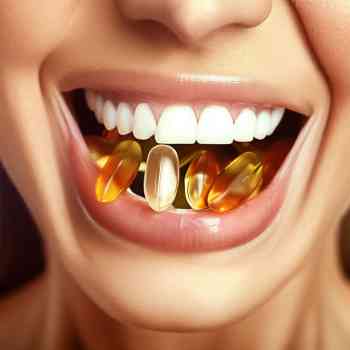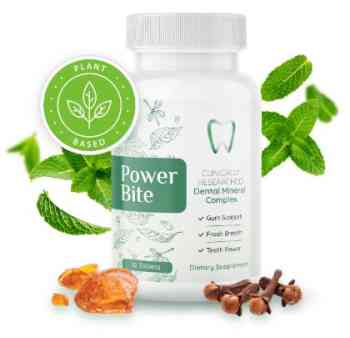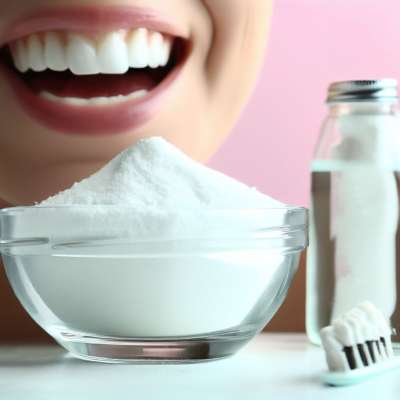Flash That Perfect Smile: Discover the Best Vitamins for Teeth and Gums

Navigating the world of dental health and knowing the best vitamins for teeth and gums is crucial. Vitamins play a pivotal role in maintaining the health and vitality of our oral cavity. While brushing and flossing are foundational, incorporating the right vitamins can supercharge your oral care routine. Ensuring you receive these nutrients through diet or supplements can be a game-changer for maintaining robust teeth and healthy gums.
Disclaimer
The content presented on this website has been generated with the assistance of artificial intelligence and subsequently edited by the website’s author for clarity and context. While every effort has been made to ensure accuracy, the author has not personally tested any product mentioned herein. Furthermore, the author needs to become an expert in dental supplements. As always, consulting with a qualified healthcare professional before making any decisions related to your health or wellness is recommended.
I. Smiling with Strength: Vitamins Vital for Dental Health
I. Introduction
A. Importance of oral health
A radiant smile is more than just an aesthetic appeal; it’s a testament to one’s overall health. The mouth acts as a window, offering clues about the state of your general health. From your heart’s health to your bones, what happens inside your mouth often mirrors what’s going on in other parts of your body. Conditions like gum disease have been linked to complications like heart disease, diabetes, and premature birth. Therefore, maintaining oral health goes beyond having white teeth—it’s about ensuring the well-being of your entire body.
B. Role of vitamins in dental care
While a regular dental care routine, including brushing and flossing, is foundational, another aspect often gets overshadowed: nutrition, especially vitamins. Just as our bones need specific nutrients to stay robust, our teeth and gums require certain vitamins to maintain health and vigor. These vitamins not only support tooth structure but also fortify the gums, which are the bedrock of our teeth. In this article, we’ll delve into the vitamins that play pivotal roles in ensuring that our smiles look great and are backed by strength and health.
II. Understanding the Foundation: Teeth and Gums
A. Structure and composition of teeth
Teeth, though often regarded for their pearly white appearance, have a complex inner design. Each tooth is composed of several layers. The outermost layer, the enamel, is the hardest and most mineralized substance in the human body. Beneath this lies the dentin, a slightly porous layer responsible for transmitting nerve signals. At the core is the pulp, housing blood vessels and nerves. This intricate design is primarily built using minerals like calcium and phosphorus, hinting at nutrition’s crucial role in maintaining healthy teeth.
B. Importance of healthy gums
Often overshadowed by the spotlight on teeth, gums play an equally significant role in oral health. Gums are the soft tissues that seal around each tooth, acting as a barrier to bacteria. Healthy gums anchor teeth firmly, ensuring stability and preventing mobility. Inflammation or bleeding of the gums can be early signs of gum diseases like gingivitis. This can progress to more severe conditions when neglected, potentially leading to tooth loss. Healthy gums are not just for holding teeth in place; they’re a frontline defense against oral infections.
III. Best Vitamins for Teeth
A. Calcium: Building strong teeth
Calcium often comes to mind first—and for good reason- when we think of strong bones and teeth. This mineral forms the foundation of our teeth, helping form and maintain a sturdy enamel. A diet deficient in calcium can weaken teeth, making them more susceptible to decay and breakage. Natural sources of calcium include dairy products, leafy greens, and fortified foods.
B. Phosphorus: Partnering with calcium
Phosphorus might not be the first nutrient you think of, but it’s indispensable for dental health. This mineral works hand in hand with calcium, enhancing its effectiveness in building strong teeth. Together, they make up the primary mineral composition of our teeth. Foods like fish, nuts, and meats are rich sources of phosphorus.
C. Vitamin D: Facilitating calcium absorption
It’s one thing to consume calcium, but ensuring its proper absorption is another ball game altogether. That’s where Vitamin D steps in. Acting as a helper, it boosts calcium absorption from the foods we eat, ensuring that our teeth get the strength they require. Sunlight is the most natural source of Vitamin D, but it’s also found in foods like fatty fish, egg yolks, and fortified dairy products.
IV. Essential Vitamins for Gums
A. Vitamin C: Promoting gum health
Vitamin C, popularly recognized for its immune-boosting properties, is also instrumental in gum health. It aids in the production of collagen, a protein vital for maintaining the strength and elasticity of gums. A deficiency in Vitamin C can lead to swollen, bleeding gums and even gum diseases like scurvy. Citrus fruits, strawberries, bell peppers, and broccoli are all excellent sources of this crucial vitamin.
B. Coenzyme Q10: Energizing gum tissue
Coenzyme Q10, often mentioned in skincare and heart health, is also a star player for the gums. It’s known to provide energy to cells, supporting gum tissue’s healing and repair processes. Some studies suggest a lack of Coenzyme Q10 could be linked to gum diseases. Foods like organ meats, spinach, broccoli, and certain fish contain this coenzyme.
C. Vitamin K: Supporting bone and gum integrity
Vitamin K often goes unnoticed in discussions about oral health, but it’s indispensable. It assists in producing osteocalcin, a protein that binds calcium to bones and teeth. Moreover, Vitamin K plays a role in blood clotting, which can help prevent excessive bleeding in gums. Green leafy vegetables, fish, meat, and eggs are foods rich in Vitamin K.
V. Natural Sources of Dental-Friendly Vitamins
A. Foods rich in vitamins for teeth
Several foods pack a punch for those keen on fortifying their teeth naturally. Dairy products like milk, cheese, and yogurt are rich in calcium and phosphorus. Crunchy vegetables, like carrots and celery, can help stimulate saliva production, a natural defense against bacteria. Nuts and seeds, particularly almonds, are also rich in these essential minerals.
B. Foods beneficial for gum health
One should lean towards a diet rich in Vitamin C and other antioxidants to support and strengthen gums. Though direct consumption in excess can erode enamel, Citrus fruits are beneficial when incorporated wisely into meals. Leafy greens, such as spinach and kale, are also beneficial, offering a mix of Vitamin C, Vitamin K, and calcium.
C. Balancing diet for overall oral wellness
The mouth mirrors overall health, and your eating can reflect your oral wellness. A well-rounded diet, rich in vitamins, minerals, and antioxidants, can help maintain good oral health and overall well-being. Hydration, too, plays a pivotal role; water helps in saliva production, neutralizing acids, and washing away food debris. Regular consumption of sugary or acidic foods can have detrimental effects, so moderation and proper oral hygiene practices post-consumption are key.
VI. Dental Supplements: A Quick Guide
A. When to consider supplements
While a balanced diet is the ideal source of essential vitamins and minerals for oral health, not everyone can achieve this daily. Dental supplements might be a worthwhile consideration in cases of specific dietary restrictions, health conditions, or even lifestyle choices. For instance, calcium supplements might be beneficial if you’re lactose intolerant. However, always consult a healthcare professional before starting any new supplement to ensure it suits you.
B. Things to watch out for
The supplement market is vast, and not all products are created equal. Selecting products from reputable brands is crucial, and being wary of any that make exaggerated claims. Checking for third-party testing or certification can be a good starting point. Remember, while supplements can support oral health, they shouldn’t replace a balanced diet or regular dental care.
C. Recommendations for safe usage
Always follow the recommended dosage as outlined in the product or as a healthcare professional advises. It’s also a good practice to inform your dentist if you take any dental supplements, especially if preparing for a procedure. Monitoring for any side effects and discontinuing use if any adverse reactions occur is crucial. Combining supplements with a nutritious diet can provide the best outcomes.
VII. Beyond Vitamins: Comprehensive Oral Care
A. Importance of daily dental hygiene
While vitamins are essential in oral health, the cornerstone of a radiant smile remains consistent dental hygiene. Brushing twice daily, flossing, and using an antimicrobial mouthwash can help keep harmful bacteria at bay. The type of toothpaste, whether it’s fluoridated or caters to specific needs like sensitivity, can also make a difference.
B. Regular check-ups with a dentist
Regular dental check-ups are indispensable even with the most rigorous at-home care routine. A dentist can spot early signs of problems that might go unnoticed, such as cavities, gum disease, or oral cancer. Professional cleanings help remove tartar, which can’t be addressed with regular brushing alone.
C. The synergy of vitamins and regular oral care routines
Imagine vitamins and minerals as the foundation and daily dental care as the protective barrier. Together, they create a powerful defense against most oral health problems. Vitamins help strengthen from within, while brushing, flossing, and regular check-ups tackle external threats. Embracing both aspects can lead to a lifetime of healthy smiles.
FAQs
Q: What vitamins are essential for strong teeth?
A: Calcium, phosphorus, and vitamin D are among the top vitamins essential for building and maintaining strong teeth.
Q: Can a vitamin deficiency affect my gums?
A: Yes, vitamin deficiencies, especially Vitamin C and Coenzyme Q10, can lead to gum problems like swelling, bleeding, and gum disease.
Q: Are there any natural food sources rich in dental-friendly vitamins?
A: Absolutely! Dairy products, leafy greens, citrus fruits, nuts, and fatty fish are some foods rich in vitamins that are beneficial for oral health.
Q: Can I rely solely on supplements for my oral vitamin needs?
A: While supplements can provide support, they shouldn’t replace a balanced diet. Natural food sources often offer a combination of synergistic nutrients for better health.
Q: How does Vitamin D support dental health?
A: Vitamin D helps facilitate the absorption of calcium, which is crucial for tooth strength. With adequate Vitamin D, calcium intake might be fully utilized.
Q: Is there a link between Vitamin K and gum health?
A: Vitamin K plays a role in blood clotting and supports bone and gum integrity, which can help prevent excessive bleeding in the gums and ensure they remain healthy.
Q: Should I inform my dentist if I’m taking dental supplements?
A: It’s always a good practice to inform your dentist about any supplements or medications you take, as they could interact with dental treatments or procedures.
Conclusion
A. Recap of best vitamins for teeth and gums
Our journey into the realm of oral health underscores the importance of specific vitamins in promoting sturdy teeth and resilient gums. Calcium, phosphorus, and Vitamin D stand out for teeth health, while vitamins like C, K, and Coenzyme Q10 are pivotal in ensuring gum vitality.
B. Encouraging proactive dental health habits.
Beyond understanding the role of vitamins, embracing proactive dental habits is essential. Regular check-ups, a balanced diet, and diligent daily care form the trifecta for radiant smiles and robust oral health. Embrace these practices, and your teeth and gums will thank you for a lifetime!
Suggested Readings
Dive deeper into the world of dental health with these insightful reads:
- The Dental Diet: The Revolutionary Plan to Save Your Teeth and Gums by Steven R. Lowenstein, DDS. This book explains how diet can play a major role in dental health and provides a detailed plan for eating a healthy diet supporting strong teeth and gums.
- Vitamins for Strong Teeth and Gums: The Essential Guide to Natural Oral Care by Susan E. Brown, ND. This book overviews the vitamins and minerals essential for healthy teeth and gums and discusses how to get these nutrients from your diet or supplements.
- The Complete Guide to Oral Health: A Natural Approach to Healthy Teeth and Gums by Aviva Romm, MD. This book covers all aspects of oral health, from diet and nutrition to dental care and home remedies. It also includes a section on using vitamins and minerals for dental health.
- The Natural Dentist: A Complete Guide to Oral Care and Natural Dentistry by Hal Huggins, DDS. This book is a comprehensive guide to natural dentistry, emphasizing non-invasive techniques and natural remedies to promote oral health. It also discusses the role of vitamins and minerals in dental health.
- The Healthy Gums Handbook: A Natural Approach to Gum Disease by Mark Burhenne, DDS. This book is a detailed guide to gum disease, its causes, and natural treatments. It also discusses the role of vitamins and minerals in preventing and treating gum disease.
Each title provides a unique perspective on dental health, helping you understand the intricate connection between nutrition, lifestyle, and a radiant smile.





